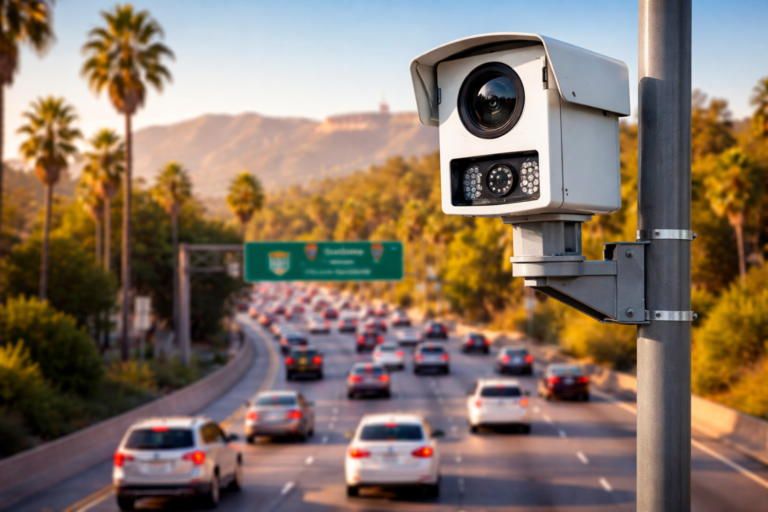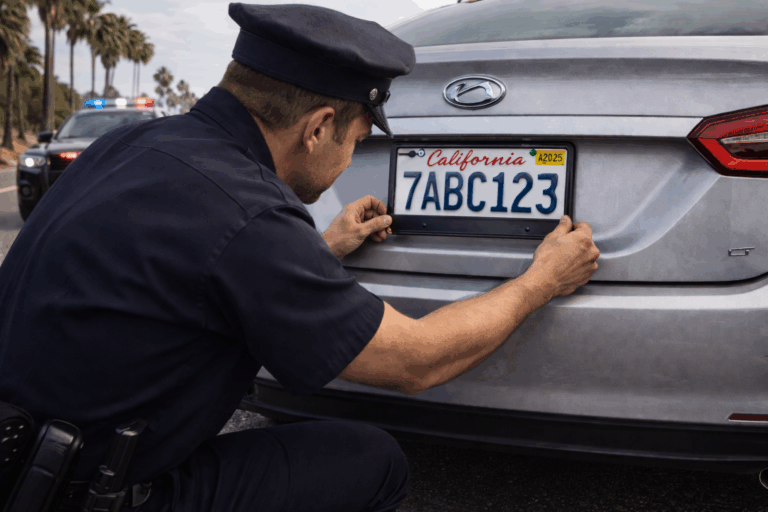Law enforcement authorities have long relied on technology to assist them in their work. Thus, it came as little surprise to many when red light cameras were first introduced. Proponents of them claim that they increase both driver and pedestrian safety by adding an extra layer of enforcement to traffic regulations. Yet how have those claims translated to real world use?
A Quick Review of Red Light Camera Technology
Red light camera technology has actually been around since in the mid-1960s. However, legislation allowing its first wide-scale use wasn’t adopted until the early 1990s. Since that time, several cities throughout the U.S. (and around the world) have implemented traffic camera technology into their transportation infrastructure.
Traffic camera systems work as follows:
- Sensors are embedded under each lane of traffic
- The camera system is activated whenever the traffic lights turn red
- The in-ground sensors trigger an alert whenever your vehicle crosses the stop line while the light is still red
- The camera (which is usually mounted on the traffic light stand itself) snaps a picture of your license plate if sensors indicate that you may have run a red light
A police officer later reviews the photo to see if an infraction did indeed take place. If so, your vehicle registration information is pulled based off your license plate, and you are sent a citation in the mail.
Do Traffic Camera Systems Actually Increase Public Safety?
Since the first traffic cameras that give tickets were installed, a wealth of data has been collected that allows both supporters and skeptics of the technology to analyze its effectiveness. Many herald studies that show that red light cameras decrease the frequency and volume of overall crashes. However, from a high-level perspective you can see that the apparent results produced by these systems is seemingly conflicting.
For example, a 2011 study conducted by the UNC Highway Research Center shows that while the systems included in its research sample did indeed contribute to a decrease in side-impact and overall crash volumes, they also caused the number of recorded rear-end crashes to rise. Broader studies conducted in 2002 and 2004 yielded similar results, showing either increases in accident totals or no noticeable changes compared to pre-implementation statistics.
A lack of promised safety improvements due to traffic camera systems has even been witnessed locally. In 2014, the city of South San Francisco chose to do away with several of its red light cameras. Along with not seeing a significant decrease in accidents, the city also encountered compliance issues with the state’s traffic camera system requirements. Unbeknownst to many officials, its contract with the camera service provider went unratified (ratification is required by state law) for almost 18 months. After the error was discovered, the city had to refund more than $1 million in citations.
A Monetary Motivation?
This brings us to one element in the debate over red light cameras California critics often point out: intent. While officials will often use safety concerns as a justification to install such systems, many believe the main motivating factor behind the push for their use is monetary. More traffic citations brings in more money for city governments. Thus, the motivation is clearly there for such organizations to adopt legislature in favor of traffic camera systems, regardless of whether they impact public safety.
We’re On Your Side
As was mentioned earlier, areas such as South San Francisco (and many others throughout the state) have elected to do away with their red light camera programs. Others, however, still utilize them, which means you could still be surprised by a citation in the mail if one photographs you (or your vehicle) supposedly not conforming to traffic regulations. If you disagree, trust in the resource for fighting a red light camera ticket San Francisco residents have come to rely on: our team here at The Ticket Clinic. Our attorneys are veritable experts in the shortcomings of California traffic light cameras, and their expertise can help bolster your claim. Simply fill out our online contact form, and someone from our office will reach out to you.



